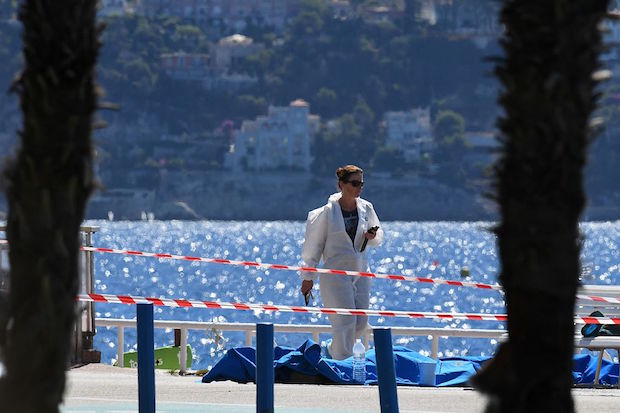For the third time in the last 18 months – twice in Paris and now in Nice – France has been left reeling from the effects of a mass casualty terrorist attack on its soil. With pictures of the dead and injured circulating freely on social media, an understandable reaction is to express solidarity with those who have suffered through well-meaning slogans like #JeSuisNice.
But solidarity is no longer enough for it has not delivered security. We must face the fact that terrorists respect actions not words. If we do not rise to the challenge being brought to our shores in Europe, then the result can only be further death and destruction within our societies.
The terrorist threat is evolving. The differences between the well-organised gun and suicide bomber attacks that have been the hallmarks of previous attacks in France and Brussels, and last night’s horrific vehicular assault, highlight the complexity of the challenge facing Europe’s security authorities. While the method of attack should not be of surprise seeing as it has been witnessed in both France and – frequently – in Israel before, the fact the perpetrator appears to have conformed to the ‘lone wolf’ model of attack should give us cause for concern.
In contrast to multi-terrorist operations, which rely upon some method of communication for coordination purposes which in theory allows for interception opportunities, lone wolf attacks are difficult to prevent once the perpetrators have settled upon a course of action. As Nice shows, sophisticated weaponry is not necessary to engage in a successful attack: vehicles can readily be used as weapons and are impossible to identify as such before their utilisation. As we have long known, security services need to be prepared or lucky every time an attack is planned in order to succeed in their task. A terrorist only needs to do so once. The fewer people involved in a plot and the less sophisticated the scheme, the more likely it is to go according to plan. No wonder lone wolves are therefore rightly feared as a difficult-to-guard-against variant of terrorist tactics.
But this cannot stop us from trying. It would be easy to suggest that we can do nothing against such attacks and therefore must focus on resilience after an outrage rather than on preventing the next one. Easy, but wrong. For there is plenty governments can do to improve our chances of defending against such carnage.
Although an official confirmation of the motivation for the Nice attack has yet to be received, President Hollande is under no illusions about who is responsible, claiming that ‘All of France is under threat from Islamist terrorism’. If indeed it is proven that the killer had been motivated by an Islamist message, as seems likely, our response must be clear. We will need to redouble efforts to pursue policies that stop people from wishing to engage in mass killings in the first place, by developing effective counter-radicalisation processes. Doing so requires an acknowledgement of the nature of the problem – a belief a version of Islam is the source of authority for such attacks, albeit not one shared by most Muslims – as well as a strategy for how to overcome it.
This will be an all-encompassing task and one which will take many years to come to fruition. But there are more immediate avenues we can take to achieve results.
It will not have escaped the attention of security services that, as with several other terrorists in recent months, the Nice assailant had a criminal background. Indeed, forthcoming research from The Henry Jackson Society into al-Qaeda and Islamic State-linked networks across Europe in the past fifteen years demonstrates the frequency of individuals involved in violent extremism having a history of contact with the authorities as a result of petty crime. While this can be seen as a depressing failure of intelligence on the one hand, it does also offer a potential avenue for intervention. If we know the criminally inclined are an easy target for radicalisation, we can do something about it, both in our prison systems and after felons are released back into society.
We need some quick wins and creative solutions. Breaking the relationship between criminalisation and radicalisation would be as good a place as any to start.
Alan Mendoza is founder and executive director at The Henry Jackson Society.






Comments